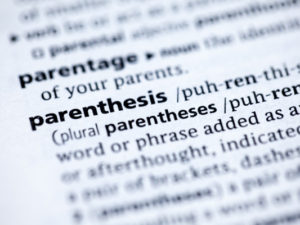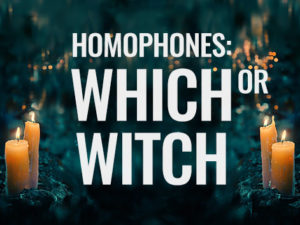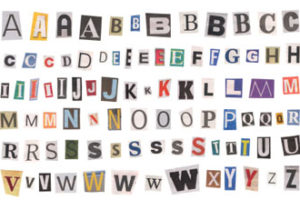
Homophones: Two, Too, and To
One of our readers wrote in to ask about the homophones too and to: “I was trying to find something on how and when to use ‘to and too’ I am having trouble in that area. I have trouble with that a lot and I tend to mess up with that. Can you help and…Read More

Grammar Rules: i.e. and e.g.
Occasionally, we come across the abbreviations i.e. and e.g., but what do they mean, and what is the difference between them? How do grammar rules apply? These two terms originate in the Latin language and are just two of the many Latin phrases that have survived into modern language. Both i.e. and e.g. are abbreviations…Read More

Punctuation Marks: Parentheses
Parentheses are among the most useful and versatile punctuation marks in the English language. They can be used effectively in both formal and casual writing, and the rules surrounding parentheses allow writers to use them for a variety of purposes. They just might be my favorite punctuation marks, simply because they provide a clear way…Read More

Homophones: Which Witch?
A reader left the following comment inquiring about the spelling of two sets of homophones: “I have trouble with witch/which (and even so, I am not sure I have those right) and weather/wheather [sic]. any good ideas on how to keep them straight???” I’ve already written a post addressing the difference between weather and whether….Read More

Grammar Rules: Fewer vs. Less
It’s a battle between words: fewer vs. less. Are they interchangeable? Do these words have different meanings? How can we use them correctly? Many people don’t realize that these two words do not share the same meaning and therefore cannot be used interchangeably. As a result, both fewer and less are often used incorrectly. The…Read More

Punctuation Marks: Quotation Marks (in Fiction Writing)
The placement of quotation marks perplexes a lot of people. Do they go inside or outside of other punctuation marks, like periods and commas? Should they be used to set off titles or to emphasize certain words? Are they used for both spoken dialogue and thought dialogue? What about text messages or notes in a novel…Read More

Homophones: Weather and Whether
Homophones are words that sound alike but have different meanings. They confuse readers and writers, and are often the source of frustrating spelling mistakes. There are lots of tricks available to help you differentiate between homophones. In some cases, you can use mnemonics to remember which spelling to use. In other cases, you just have…Read More

Grammar Rules: Capitalization
Proper capitalization is one of the cornerstones of good grammar, yet many people fling capital letters around carelessly. Not every word deserves to be capitalized. It’s an honor that must be warranted, and in writing, capitalization is reserved only for special words. Most of the grammar rules are explicit about which words should be capitalized….Read More

Is It Plural or Possessed? When to Use Apostrophe -S
It’s one of those grammar glitches that makes English teachers twitch, and it’s a perplexing punctuation problem. Knowing when to use an apostrophe and when to use apostrophe -s can be tricky, but this grammar quickie provides all you need to know about plural versus possession when it comes to apostrophe -s. Pluralization You can…Read More

Homophones: Compliment vs. Complement
Homophones are words that sound alike but have different meanings. Sometimes, they’re also spelled differently: compliment vs. complement. Since homophones sound the same, they are often misspelled. Sometimes they’re misspelled because the writer doesn’t know there are two different spellings. In other cases, misspelled homophones are the result of typing too fast or failing to…Read More



